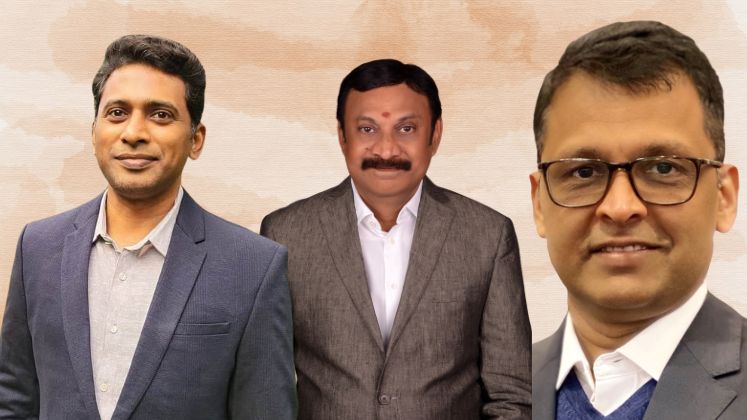
The Southern India Mills’ Association (SIMA) has announced its new leadership team at its 66th Annual General Meeting in Coimbatore, with industry leaders voicing optimism about the resilience of India’s textile and clothing sector despite challenges posed by higher US tariffs.
Durai Palanisamy, Executive Director of Pallava Textiles P Limited, Erode, has been unanimously elected as Chairman for 2025-26. He is the Vice-President of CII, Erode Zone. He is also in the Committee of Administration of Manmade and Technical Textiles Export Promotion Council (MATEXIL). S. Krishnakumar, Managing Director of Sulochana Cotton Spg Mills P Ltd, Tirupur, has been elected Deputy Chairman. His company primarily converts used PET bottles into recycled yarns and fabrics. He also heads the newly formed Tirupur Yarn Manufacturers Association. K. Sivaraj, Managing Director of Sivaraj Spinning Mills (P) Ltd, Dindigul, has been named Vice-Chairman. Sivaraj Spinning Mills is a leading player in the domestic market across its four-product portfolio, yarn, woven fabric, knitted fabric, and readymade garments.
Palanisamy said the sector had consistently demonstrated resilience and growth potential. He stressed that, although recent US tariff measures had created notable challenges, rising domestic demand and market diversification would help offset the temporary decline in exports to the United States, which currently accounts for 28% of India’s total textile exports valued at around US $ 11 billion.
He added that with the right combination of innovation, competitiveness and Government support, the industry would overcome current hurdles and play a pivotal role in making India a global textile powerhouse. He expressed gratitude to the Government for what he described as “path-breaking initiatives” to address structural issues in the sector, including the removal of the 11% import duty on cotton until December 2025, the launch of the Mission for Cotton Productivity with an allocation of Rs. 5,900 crore (US $ 706 million), and rationalisation of GST rates across the textile value chain.
Palanisamy noted that GST 2.0 would further expand the scale of the sector but warned that the continued accumulation of GST at 18% on textile machinery remained a significant burden in the absence of the Technology Upgradation Scheme since 2022. He said addressing this issue, alongside resolving challenges arising from Quality Control Orders (QCOs) on man-made fibres, was critical to improving competitiveness.
He urged next-generation industry leaders to explore emerging global markets and invest in innovative products based on man-made fibres, highlighting these as the “engine of growth” given the limited scope for expansion in cotton textiles.






